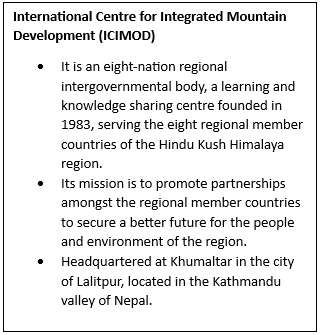You're all caught up—no notifications available.
Explore All Exams at KGS

All Exams
Explore All Exams at KGS
Khan Sir Courses
Geography I Polity I History | World Map I Indian Map I Economics I Biology
UPSC & State PSC
UPSC I BPSC I UP-PSC I MP-PSC
State Exams
UP I Bihar I MP | Rajasthan
NEET | JEE | CUET | Boards
NEET | JEE | CUET | Boards
Defence Exams
NDA I CDS I CAPF I AFCAT I SSB I Agniveer
Police Exams
UP SI | Bihar SI | Delhi Police | UP Constable
SSC Exams
CGL I CPO I CHSL I MTS I SSC GD I Delhi Police
Foundation Courses
Physics I Chemistry I Biology I History I Geography I Polity I NCERT I Math I English | Map I Reasoning
Railway Exams
RRB | RPF
Teaching Exams
TET | Teaching | UGC
Banking Exams
SBI | RBI | IBPS
Engineering Exams
Civil | Electrical | Mechanical
UGC NET
UGC NET/JRF
Current Affairs provides you with the best compilation of the Daily Current Affairs taking place across the globe: National, International, Sports, Science and Technology, Banking, Economy, Agreement, Appointments, Ranks, and Report and General Studies

Syllabus:
GS-3: Conservation, environmental pollution and degradation, environmental impact assessment
Context: The ICIMOD report reveals that the Hindu Kush Himalayas (HKH) region is tapping only 6.1% of its vast renewable energy potential, with hydropower significantly underutilized.
About the Report
• The ICIMOD released the report titled, ‘Together we have more power: status, challenges, and the potential for regional renewable energy cooperation in the Hindu Kush Himalaya,’ in September 2025.
• The report examines existing energy sources, the share of renewable sources in the overall energy mix, analyses climatic and non-climatic risks to the energy sector and explores potential for renewable energy cooperation.
• The HKH consists of the eight nations namely Afghanistan, Bangladesh, Bhutan, China, India, Myanmar, Nepal, and Pakistan.
Key Highlights of the Report
• Hydropower potential vs Exploitation: The HKH region holds 882 GW of hydropower potential across eight countries, with 635 GW from transboundary rivers. Only 49% of this is currently utilised.
• Non-Hydro Clean energy: It comprises solar and wind energy, which amounts to 3 Terawatts in the HKH region.
• Pledge and Potential: As per the Nationally Determined Contributions, the total combined renewable energy targets of the countries of the HKH amount to 1.7 Terawatts; the renewable energy potential within the HKH region alone is over 3.5 Terawatts.
• Renewable Ownership Disparities: Bhutan and Nepal generate all of their electricity from renewable sources, while fossil fuels dominate electricity generation in neighbouring countries namely Bangladesh (98%), India (77%), Pakistan (76%), China (67%), and Myanmar (51%).
• Heavy Reliance on Traditional Biomass: Biofuels and waste make up a significant portion of total primary energy in four HKH countries, Nepal (66.7%), Myanmar (50%), and Bhutan and Pakistan (25% each) which stresses continued reliance on wood, crop residue, and dung, which impacts health and air quality.

Barriers to Progress on Renewables
• Financial and Investment Challenges: The region faces difficulty with high capital costs, limited public finance, difficulty in attracting private investment, and the need for sustained investment in research and development.
Eg: Afghanistan’s Khanabad-2 hydropower project in Kunduz province is stalled for lack of funds and foreign investment.
• Social and Environmental Concerns: There are potentially far-reaching consequences for local communities, ecosystems, and public health.
Eg: Tehri Dam on the Bhagirathi River displaced about 100,000 people and submerged 125 villages, disrupting the Himalayan ecosystem.
• Technological and Operational Challenges: A lack of advanced technology and experience, combined with limited knowledge on operations and maintenance, poses barriers to efficient implementation and long-term management of renewable energy projects.
Eg: Nepal’s Khaskusma hydropower project stalled due to poor expertise, technical know-how and maintenance capacity.
• Land and Policy Challenges: Land availability, air and water pollution considerations, and absence of robust policy and regulatory frameworks further complicates renewable energy deployment.
Eg: Steep terrain restricts solar farms, and weak regulations risk water pollution from hydropower.
• Climate Risks: The region’s fragile climate endangers hydropower through glacial lake outburst floods (GLOF), shifting river flows and extreme weather.
Eg: The 2023 Teesta III Dam GLOF in Sikkim damaged infrastructure and displaced thousands.
Regional Energy Cooperation: Key Recommendations of the Report to Overcome Barriers
• Regional Cooperation: It promotes renewable energy trade, reduce disaster risks, strengthen agricultural trade, industrial development and leverage platforms like SAARC’s Energy Centre and BIMSTEC for skill and technology exchange.
• Encouraging Private Investment: It facilitates technology and knowledge transfer while supporting green growth and job creation.
• Diversifying Energy Sources: enhance agricultural productivity and helps countries achieve their national and global energy commitments.

NCERT Books
Resources
We love learning. Through our innovative solutions, we encourage ourselves, our teams, and our Students to grow. We welcome and look for diverse perspectives and opinions because they enhance our decisions. We strive to understand the big picture and how we contribute to the company’s objectives. We approach challenges with optimism and harness the power of teamwork to accomplish our goals. These aren’t just pretty words to post on the office wall. This is who we are. It’s how we work. And it’s how we approach every interaction with each other and our Students.
Come with an open mind, hungry to learn, and you’ll experience unmatched personal and professional growth, a world of different backgrounds and perspectives, and the freedom to be you—every day. We strive to build and sustain diverse teams and foster a culture of belonging. Creating an inclusive environment where every students feels welcome, appreciated, and heard gives us something to feel (really) good about.
Get Free academic Counseling & Course Details
